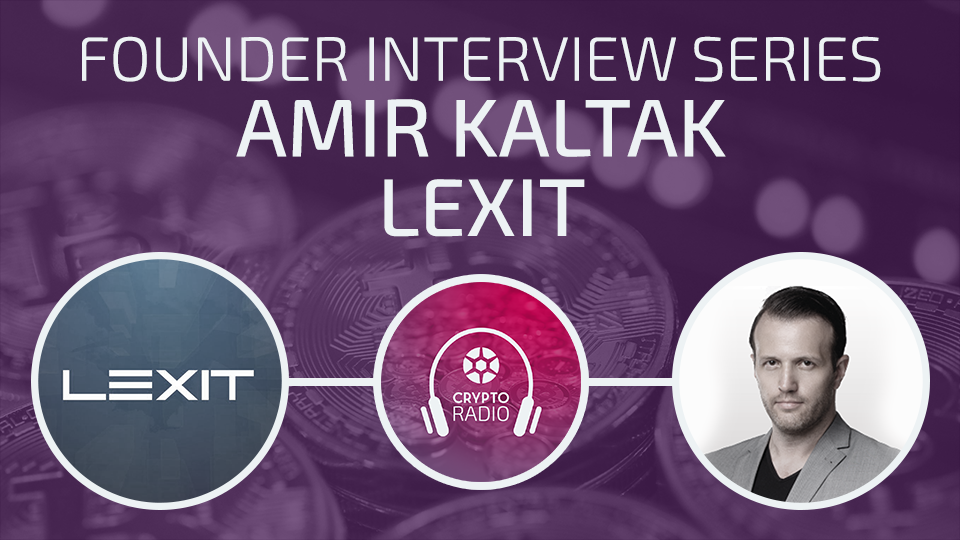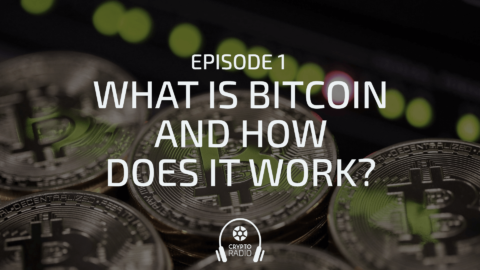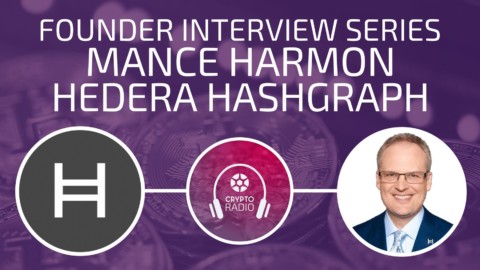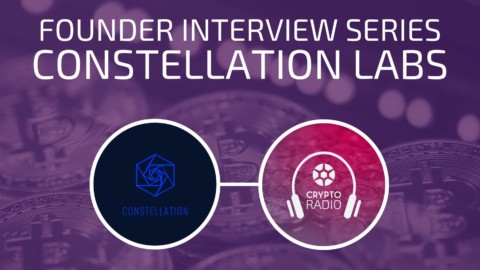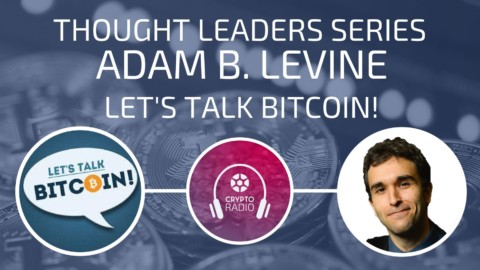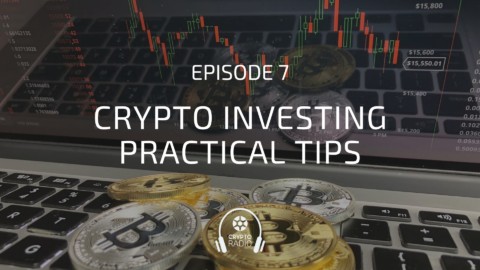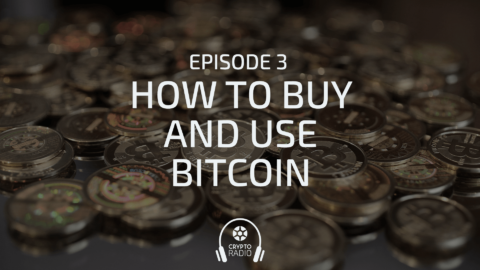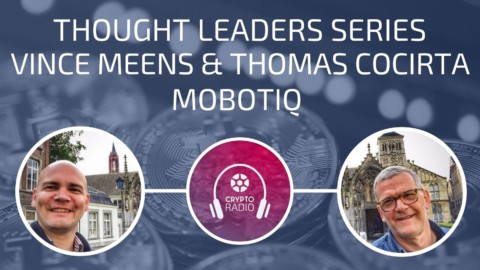Podcast: Play in new window | Download
Euvie: Welcome to Crypto Radio. I’m your host, Euvie Ivanova. [00:00:30] Joining me is my co-host Mike Gilliland. Today in the show we have Amir, the founder and CEO of Lexit. Lexit is a marketplace for selling intellectual property built on blockchain technology. It lets people sell their IP and find buyers, and it lets buyers to get the best deals. These guys have a solid team and some interesting partnerships in place in Europe, North America, Asia, and other regions. The founding team has been serial entrepreneurs for over 20 years, and they’ve already worked on several companies together.
[00:01:00] They’ve been working on the Lexit platform for the last two years and are planning to do a public launch of it within the next year. They’re not going to be doing a public crowd sale, because they’re only planning to raise $10,000 Ether, which they’ve already almost raised. So, they’re going to sell out in the pre-sale which will end in the first week of February 2018. To find out more about Lexit with all the links and mentions of this episode, go to cryptoradio.io/8.
Mike: So, today we’re joined by Amir from the company Lexit, [00:01:30] and he’s going to give us a quick elevator pitch right now. So, Amir, welcome.
Amir: Hi everybody. My name is Amir, CEO and founder of Lexit here in Estonia. Lexit is the MN8 marketplace on blockchain. You can sell and buy your companies. You can sell and buy IP and technology.
Mike: Perfect, very cool. Okay, so why did you start the project?
Amir: Well, a few years back we tried to sell technology of one of our previous start ups to fund the next one and we just realized everything depended on our address book. It was almost [00:02:00] impossible to find a buyer. So, in solving a problem for ourselves we figured, wait a second, we could actually solve the problem for many, many people in the start up space. Because most start ups stay stale and what are you going to do with all this great technology? It’s hard to get into the market, you don’t know the people in the MNA space or the technology acquiring space. So, we figured this is actually a great idea to build a whole platform on that.
Euvie: That’s cool that you actually came from is solving a problem that you had to understand [00:02:30] what the details of that are. How does blockchain fit into this and what kind of problems is it solving?
Amir: When we were conceptualizing the whole thing, the first ideas of Lexit, you have to understand we’re been developing this since almost two years. The first year we were just doing the conceptual and how to fit complexity of MNA into an easy to use web interface first, and how to reflect from a small company to a large enterprise. All of them in a professional and doable way. [00:03:00] The problem was just that you as a start up, you don’t have to contact an MNA space. You don’t have the exposure. If you just crash your start up the first thing that you want to is to go to an MNA lawyer or consultant, and you would have to make a serious down payment. But you don’t have that money because you just crashed your start up, right? So, how do you get into that? How do you get access? And this is the problem that we solved. We’re giving you access to the wall of MNA, that’s what it actually is.
Mike: Actually, before we go on, can you just define MNA [00:03:30] really quickly for listeners who don’t know.
Amir: MNA is not as sexy for most people, but it’s one of the biggest, probably the largest corporate markets out there. It’s seven trillion almost large annually. And MNA stands for mergers and acquisitions, it’s when, for instance, a company like Facebook acquires WhatsApp. That was an MNA. So, it’s when a company buys another company, that’s basically what it is. Mergers and acquisitions.
Mike: Perfect, thank you.
Euvie How does blockchain fit into this? Why did you decide to use blockchain?
Amir: Well, [00:04:00] when we started out we first ran the whole simulations and flows based on Fiat. We very quickly realized that Fiat is just not doing it. It’s way too slow, you’ll go multiple bank nodes before a transaction reaches its point. It’s very untransparent and costly too. So, we figured why don’t we use cryptocurrency for that payment cycle within the platform. And we figured, “Okay, blockchain is definitely worthwhile looking into it.” So, we thought using [00:04:30] Bitcoin or Ether for that stuff, but then we realized it also has its limitations. Its own token would actually solve all problems and fit right into the space.
So, wait a second, if we need our own token, we could actually do an ICO and freeze the current seeds we have open. We have had already multiple angel investments also from the blockchain space, from [inaudible [0:04:50].9] holders. I don’t want to name them but the third largest peer to peer exchange in the world, the two founders are angel investors here. So, we figured we could do an ICO and freeze the seed drawn and this is what we did. [00:05:00] So, we didn’t come to the ICO like, “We have a great idea, let’s do an ICO first and then we see what’s going to happen. Once we have the money, we’re going to figure it out.” We’re already doing it and figured, “Wait a second, crypto technology has actually solved many, many problems along the way.
So, this is the token site, why we use a token. And what we do with blockchain technology itself is very exciting because MNA is a complex space as I mentioned. And there are two parties, there’s a lot of money on the table, [00:05:30] so how do you establish an initial level of trust, right? this is not easy. So, they’re strangers, it’s a lot of money, and [inaudible [0:05:36].6] of trust. Transparency helps a lot, right. It goes a long way. So, what we do is we are monitoring every deal and every action on every particular deal from all parties involved, and hashing it into a blockchain lair. Making it transparent and accessible to all parties at the same time. So, everybody knows what’s happening and this is creating an initial level of trust which you need to move forward [00:06:00] in this kind of deals at that magnitude.
Euvie: Cool, very interesting. So, how did you get into the blockchain space personally?
Amir: Personally, years ago I was stocking note on my laptop to my Bitcoins and I couldn’t figure it out. It was just hilarious, this is how it started. I’m a coder myself, I stopped coding years ago because I found people who are better at this and hired them. But I started coding in the 80s as a kid. I’m in my 40s now, so over [00:06:30] 20 years in the entrepreneurial space and we figured that it’s the future. Look, blockchain as a concept is pretty simple. To many people it’s a complex thing or what not, but actually it’s not very complicated if you know a little bit about it.
But the simplicity of it create an incredible approach to many problems right now and to transform them into the future. We quickly realized that blockchain tech is going to not change only finance, it’s going to change many, many systems. So, this is why we [00:07:00] thought, “Wait a minute, if we already revolutionize MNA, why don’t we just use the latest technology for that and bring it into a safe and transparent [inaudible [0:07:09].5] so to say.” This is why we did it.
Mike: So, do you have any competitors in this space? And, if yes, what are they doing? If no, why aren’t there any competitors?
Amir: This is the crazy part. Nobody does that in a way, because I think the complexity and the hundreds of countries and jurisdictions to solve this from the little aspect, from the business growth aspect [00:07:30] size of a lot of people probably. Also, MNA is enhanced from, let’s say, the old money, right? It’s been a structure built on hundreds of years, where companies buy companies and what not. But nobody ever tried to grasp this problem at its root core and to find a solution. All platforms were selling website or domains to particular small firms, who specialized on patterns and all that.
They exist, but nothing that takes the full scope of an MNA deal into account [00:08:00] to build a solution. So, furthermore, very important is if somebody would copy cat us right now we wouldn’t sweat at all, because part of our Lexit system is a partner program around us, which we’re establishing over the course of now two years. So, if you want to catch up with us you would need to build this strong MNA consultancy partner program around you, and make those deals. So, we’re pretty confident that, no matter what, we have quite a head start.
Mike: Great.
Euvie: [00:08:30] You mentioned that you guys started a couple of years ago. So, how far along is your project? What stage are you at now?
Amir: My co-founders, Denis and Mia, we go way back, like three companies. We measure in companies here, start-ups. And so, almost two years ago the initial idea was born. The first year we were just doing concepts, and logic, and flow, front ideas and what not. And after the first year then we actually started coding, and we developed into a better version, where we did not yet implement to the wallet system, [00:09:00] to the internal exchange system, and the token distribution system within the platform. So, this is actually the reason why we fundraise to finish the last mile end. As of now, I can say we will launch Lexit in the full running version with everything during spring this year, 2018. So, this is pretty exciting. So, it’s not just a white paper dream, like you have a quizzical vision right and in four years you’re [inaudible [0:09:23].1], I don’t know. It’s actually very, very far into the depth, yes.
Mike: Great. What does the roadmap look like for [00:09:30] the next 6 to 12 months? And what are some of the key milestones and challenges that are going to determine your success?
Amir: We just recently started the private pre-sale, we kicked off the road show in Asia from started in Singapore then Shanghai then over to Japan and back to Shanghai. This is what’s happening right now. We are in the pre-sale, in the midst of it. We actually way over subscribed the allocation for Asia which is exciting. So, we went to Shanghai, right. To me, always a mysterious city of long nights and dangerous people, [00:10:00] right. And you go back with a bag of crypto, this is pretty exciting, the fact that we made it out alive. I’m kidding, China is a great place, nice people and I don’t want to give you the wrong impression. China is amazing.
We made new friends and, more importantly, the fundraise in China that we established strong, strong friendships and partnerships with future MNA partners in this space. So, you need to be aware that in China things run a bit different. You have to be in full compliance with governmental structures [00:10:30] as elsewhere, but more in China. And we managed to establish good contacts over there and also nice to say, we’re based in Estonia [inaudible [0:10:38].6] and everything. But our headquarters are in Singapore. But we will open up shop in Shanghai during the next four months, just to signalize how important this market is for us to help the Chinese economy connect to the Western more. To help moth sides to exchange technology and make MNA easier for those to have with is.
Mike: [00:11:00] Great.
Euvie: Alright. So, let’s talk about your team actually. What is the core teams background?
Amir: So, my background myself is I’m in [inaudible [0:11:09].8] since 22 years now. I did my degrees back then and the first thing I did the very same day, and I swear this is true, I was in Germany – I grew up in Germany – and I went to register a company. The lady asked so what was it going to do. I said, “I don’t know.” She said, “You can’t say I don’t know, you have to tell me something.” So, I picked up 10 things and just [00:11:30] started doing something, and it turned out to be a media production facility was my first thing, it was very happy, very proud. But it crashed as most of my projects, and most of the projects of anyone I know, they didn’t make it. But a few did make it. So, I would say I’m an entrepreneur, mostly rooted into technology and media.
So, Dennis [inaudible [0:11:52].3] he’s a designer. This is how it started out. The moment I met him he was bartendering, so [00:12:00] I took him out of this one here. But he has a genuine view on things and a great taste for balance, and he developed himself into a full product guy, he’s the CPO. Mia is doing the operations COO, and her background is academic. She was running research and University of Helsinki, in particular for online addictions. This is kind of funny, right? So, anyway, she knows a lot about how people behave online and why they do things they do. Along the way she was organizing for the University of Helsinki [00:12:30] very large events and budgeting stuff and whatnot.
So, she was a perfect fit to do operations for us, and we also go way back through companies. So, there is [inaudible [0:12:39].4] co-founder team, actually like family, I have to say that. Very important to mention Jason, the CSO. He’s running a legal firm focused on ICOs and MNA, so he was a perfect fit. His company’s based in Bangkok, so legal. He’s just the jack of all trades, great with people and a full blown [00:13:00] doctor of law, right? So, he is kind of our legal backbone in the team. Fredrick [inaudible [0:13:03].9] from Amsterdam is an investment banker ex-navy pilot for the Dutch navy, which is also pretty cool. And has the nerve, is the closer type, and he’s the guy director of this development.
Nikita can speak eight languages. He’s the head of marketing, [inaudible [0:13:20].8] in many countries. Friends all around the world and he’s master of marketing and is a great guy in general, and just very intelligent. [00:13:30] So, [inaudible [0:13:30].8], very important, the CTO. Multiple [inaudible [0:13:33].4] is just a super calm dude, but he is like so clear minded, right. If there’s a jumble of problems, he right away sees the path, right? So, he’s a genius coder, he’s basically the whole concept, the whole technical stack is from him. It’s impressive how he works. Did I mention somebody else? We have Krista. Krista is very important to keep this stuff going.
He’s the executive assistant, also worth mentioning, [00:14:00] and helps us currently to relocate into the new headquarters here in Estonia. Yeah, I’m very happy with my team. I can’t say more than that. Very important to mention we’re working with [inaudible [0:14:11].5] division and his team. Dozens of people around the world helping us with the campaign and making basically all this ICO craze possible, right. To us, this is the first ICO we do and honestly, we had to learn a lot along the way. So, [00:14:30] they helped us a lot in opening up many important doors for us.
Mike: Great. Can you tell us a bit more about your advisors and, if you have any strategic partnerships in place, can you tell us about those too?
Amir: Yeah. I was particularly proud, we managed to get two top tier guys from the space [inaudible [0:14:44].2] from [inaudible [0:14:46].2]. He is one of our advisors, he’s a gentleman person first, highly respected in the industry. His company is one of the well-respected ones who does smart contract auditing. So, [00:15:00] they are really, really well connected. And also, they’re going to do the audit for us to make sure that our smart contracts and everything is absolutely impeccable, right? Jared [inaudible [0:15]:9.8] might be known for a few of you guys, he’s the founder of Coin Setter in New York city which he then exited. Also, funny, [inaudible [0:15:18].9] they bought this company.
He’s a well-connected individual in the crypto space since I think the beginning. Jared is just a great person, definitely a strong asset for us and he’s just opening up [00:15:30] so many doors to top tier backers and I’m just excited to work with him. The third one is Nikolaj, Nikolaj [inaudible [0:15:39].4] is just ex-Googler, right. He was one of the head agent HNR in Europe, in London. And he’s fuelling us constantly with great talent and everything along that lines. So, yeah, these are the three advisors. And the partnerships we are building up now, they are based in Moscow, [00:16:00] they’re based in Helsinki Finland for Scandinavia, in [inaudible [0:16:03].0], UK, Spain, Mexico.
As we speak right now, closing more and more deals. And before I can say the name of those four companies, but you might know which ones. They are route and auditing and consulting worldwide. The big four we called them. We are about to close deals with those two and engage in a strong partnership. So, they fuel just use and a few billables for assessments and auditing tasks to them. [00:16:30] So, I think you get a hint who these are, but I don’t want to say the name of the company which when the company is not signed yet, so yeah. But it’s exciting. The response in the industry, it’s amazing.
Euvie: Yeah, that sounds great. So, let’s move onto and talk about the tech a bit. Can you explain the utility value of your token?
Amir: First of all, the token itself. To quickly give you an idea of how it works, right. now, I am selling my start up. I do have to pay a listing fee. You have to do this in LXT in the token. So, if I want to have access [00:17:00] to new features, you have to pay LXT. If I am a buyer and I want to have a sneak preview access to offerings which are listed but still in the executive room, how we call it, which is kind of a non-public space, you have to pay a lot of tokens. So, there is a token influx which goes into the community wallet. Then there is the third party on the market place which is the assessors. The assessors are professional MNA people who are picking the listings and requesting them to be assessed.
Meaning, they do [00:17:30] a sort of due diligence, a light one, to give the buyers a better picture on what’s on the market and what they think it’s worth and why they think it’s worth that. The folks get rewarded from the community wallet with plenty of LXT tokens. So, this is a value cycle, a closed cycle, where we as Lexit don’t participate and don’t make an earning or any thoughts of that, alright. So, these parties are interacting with themselves and the tokens that are exchanging in between them.
[00:18:00] So, this is why the token is a perfect carry out value in the system. Way, way better than we could have done with any credit card or Fiat billings or wiring or any sort of that, right. So, this is why we picked the token itself. Then it’s very important to mention one thing, it is that when a deal goes through the final bill is made, the proceed to the due diligence in the deal room. And would invite legal and audit support from all sides to get the deal done, whether drafting agreements all within Lexit still, right. Whether signing the agreements all within Lexit, they make the final transaction [00:18:30] to exchange ownership, right. And at only this point we will receive our commission, this is how we do our revenue.
The commission is various between eight to two percent, which is on the penny on the dollar cheaper than MNA first. And eight percent one million and two percent above 35 million in volume. Now, they have to pay this commission to us, we only accept LXT token. So, we believe that strong in our token that I say, “Please, I don’t want your dollars, I don’t want your euros, [00:19:00] I don’t want even your Bitcoins. I want just the token.” So, this is how we apply the token to the whole platform.
Mike: Interesting.
Euvie: Which platform are you building your tech on and why?
Amir: So, the token itself is a RC20, it’s on Ethereum blockchain. There’s so much documentation, a huge community, and it just makes sense for us. If we would have said, “Alright, let’s build on blockchain our own protocol,” and all that, this would draw us back in time too much, right. So, there is this existing amazing Ethereum blockchain [00:19:30] with the smart contracts and many solutions in place. So, we figured this is actually the way to go. So, we will build it on the RC20, or, we build it on the RC20 in this case.
Mike: Great. So, moving onto marketing. What are your plans for marketing your project?
Amir: I’m going to be frank now and use this opportunity, I can’t hide it anymore because the community’s already asking. We will do an ad drop. So, why do we do it? Because we will be heavily over subscribed in the pre-sale [00:20:00] right now. So, the pace the sale is going right now there is no way that we’re not going to make it. The reasons also we chose a small hard cap of $10,000 Ether only, which is roughly, I don’t know, something like 10 million dollars right now. The reason for that is because I believe personally that you should only raise what you really need, okay.
I never understood why you have to raise 50 or 100 million in USD value for your project and you haven’t even started, you don’t have even a full team. Why do you do that? I never got this. So, I believe that you raise what you really need and then you focus on [00:20:30] building your thing and make it a success and hopefully it’s going to play out nice for everybody involved who is holding anything. So, we have to be careful how we, of course, describe that. I can’t promise anything, what I can promise is that we’re going to build an impeccable great platform to do MNA. The tech is great, it’s top notch and yeah, that’s what I can say about that.
Mike: So, what is your go to market strategy once the project is built?
Amir: As I said, the partner program is very important to us, because [00:21:00] they’re going to deal and deals with flow through it. We’re going to have extended road shows along the start up hops. I’m not talking crypto space per se, I’m talking all start ups around the world. We are a start-up, we do understand them. We are a tech start up and we are going directly to them. And, as of now, since we kicked off Lexit publicly in a way, at the Lisbon web summit last November. On a website you can subscribe a pre-listing of your start up or your asset or your IP, right? And I’m pleased to say that we have [00:21:30] hundreds and hundreds already in, and they’re piling up more and more.
So, what we’re going to do is we’re going to take those pre-listings and make real listings out of them with the interested subscribers. And when Lexit goes online, this is going to be already probably 1,000 or even way more of real life listings on the platform. So, we’re starting right away with the crowded marketplace. And this is very exciting to us. And as we learned, look, we’re solving a problem for every shareholder involved, right, since 96 percent [00:22:00] do fail, investors and founders. All are interested in somehow making a value out of the failed projects. But then there is successful ones, the food ones who are, even if they’re plateauing doing revenue and creating value, they will be excited to have the opportunity to be exposed to the global world of MNA to get found as a possible target to be acquitted.
So, it’s a win-win scenario for everyone. Basically, here is no loser. If it doesn’t get sold, at the end of the day, there’s got to be a reason [00:22:30] for that. Probably it wasn’t that great after all, right, but the chances are that you will find your buyer on exit.
Mike: Great. As far as the actual sale goes, are you calling it an ICO, a token sale? What terminology are you using?
Amir: At the moment we just call it a private free sale. We don’t call it even ICO because, as I mentioned, as of now discussed with the team we will not do a public round at all. So, we will not go crowd. Instead, we’re going to do an ad drop, yeah.
Mike: Okay, cool. So, I’m going to just reiterate [00:23:00] some of the questions you’ve already answered about the sale itself. How much money are you raising and why?
Amir: Alright, we’re raising $10,000 Ether, only because we believe in raising what you only need. We don’t need more to finish the last mile of the depth. So, this is why we decided to do that. Plus, it’s more attractive to backers, low caps are actually something which is very positively seen in the scene, so we thought why we don’t keep it concise and [00:23:30] only get what we need. So, this is why we raise only $10,000 Ether.
Mike: So, how do you plan on spending that capital?
Amir: We’re going to spend the largest part of it for listing fees on exchanges and for marketing. Roughly half of it is going to be spent on marketing and on listing fees because we all know the exchanges are asking. No matter how good you’re connected, it’s still going to ask something. So, we’re going to basically spend half the funds for that, and the other half for [inaudible [0:23:55].7] and administration, which is pretty small.
Mike: So, [00:24:00] do you have a vesting period for the founder’s tokens?
Amir: Yeah, we do have everybody who gets tokens is on the vesting. Some of us, like the core co-founders, they have a little pile right away but not much. And, as we only give out 10 percent to the founders, to all company shareholders, this is also really, really limited. Also, to mention, 50 percent of all tokens to market. Okay, so we want the power, so to say, in the hands of the community. We don’t intent [00:24:30] to focus the power in our hands, it’s not necessary. I want the community to thrive and to use the token to do great things with it, to use it on Lexit or to use it just solely for whatever they want to use it for.
Euvie: Do you have any restrictions on who can buy your tokens?
Amir: As of now, we have to be careful of the United States and Singapore, for instance. But elsewhere we don’t have any restrictions, no.
Euvie: And so, since you’re not doing a crowd sale, when will the tokens be distributed [00:25:00] from the private sale?
Amir: Right. The private sale is going to be over any time in the next, I guess, seven days, given the pace of the sale. And once this is done, four weeks after that we will be roughly doing the ad drop. When the ad drop happens, we’re going to distribute all tokens at the same time. Meaning, the [inaudible [0:25:17].1] is going to be distributed at the same time as the backers and everyone else. So, in that time. And we will take your next questions, already I assume it’s this one. There is not lock down, okay. So, [00:25:30] we don’t believe in lock downs and I think people should, if they participate and trust in us and help us in the project they should not be locked down. Usually, they’re smart people and they know what to do and they know when to hold and when to sold. So, I believe let them do what they want to.
Mike: Great, so final question. What’s your quick pitch? Why do you think people should get involved in your project?
Amir: So, Lexit is an amazing opportunity because it’s the first MNA marketplace. MNA is [00:26:00] a huge seven trillion dollars almost in volume every year. We will improve MNA. What we’re going to do MNA what Uber did to taxis, and you should definitely take a look into it. Lexit from Estonia, from Singapore and soon from Shanghai. We love you all.
Mike: Great, awesome.
Euvie: Awesome.
Mike: So, thanks for joining us. We’ll include all of the resources and everything to your project at the end of this episode. I think we’re done.
Amir: Thank you, my pleasure. [00:26:30]
This is the first episode in the series of interviews with the founders of blockchain companies.
Our first guest is Amir Kaltak, a co-founder and CEO at Lexit.co, a marketplace for selling intellectual property, built on blockchain technology. It lets people sell their IP and find buyers, and it lets buyers get the best deals.
Lexit aims to solve the problem of access to the world of M&A (Merger and Acquisition), which is an estimated $700bn market. As millions of businesses are being formed and disintegrated each year, buyers and sellers have a very hard time finding each other and negotiating fairly.
The idea for creating Lexit actually came from the experience of its co-founders, Amir Kaltak, Denis Raider and Maija Majamäki, who have been serial entrepreneurs for over 20 years. When they were searching for opportunities to sell their previous companies, they ran into very complicated M&A processes, and decided to solve the problem using blockchain technology. They have been working on Lexit for the last two years, and now have some interesting partnerships in place in Europe, North America, Asia and other regions.
How does Lexit work?
Lexit is a distributed network of independent assessors and matchmakers, which makes the M&A processes four times faster than they are now, and decrease the costs for about 25%. To facilitate transactions and make the deals fast and transparent in this very specific marketplace, Lexit also introduces its own token LXT.
For those of you who want to get involved, on February 28th, 2018 Lexit will distribute 2% of the total LXT token supply among interested community members via public airdrop.
Resources
- Lexit’s public airdrop
- Lexit’s White Paper
- Crypto Radio Episode 06: Beginner’s Guide To Crypto Investing
- Crypto Radio Official Launch Contes

